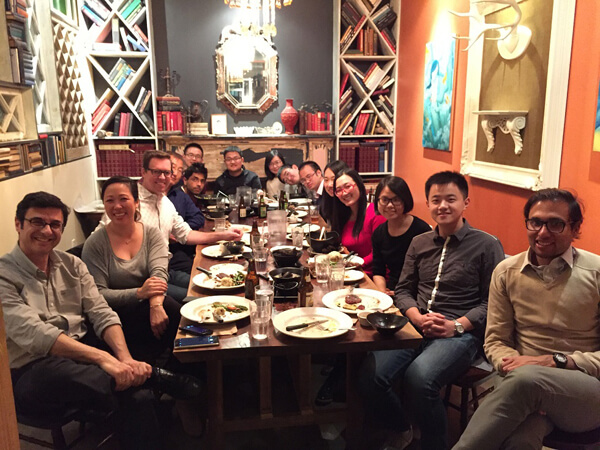By Nirakar Poudel
My first two years here at USC in the EE PhD program were a little difficult socially. The electrical engineering department is one of the most diverse on campus, with students from all across the globe. Our three largest communities are made up of students from China, India, and Iran. Students that come here from these countries often find lots of friends ready to support them and enjoy a social life with (what little social life Ph.D. students have, that is).
I’m not from China, India, or Iran. I’m also not American. I’m Nepalese. In fact, when I started here I was the only Nepalese student in the entire school of engineering. Needless to say, navigating the social structure of a new school with firmly established groups was intimidating.
In my early days, I observed that people from the same nationality would often congregate together and live in their own groups. There’s nothing wrong with this of course, but sometimes it can lead to unconscious segregation. As someone without a built in community to join, maybe this was a little more obvious to me. Although I went to a very diverse and vibrant international university, I found it difficult to overcome my own mental hurdle to go and interact with students from different backgrounds. Diversity can be an important asset for a school, but only if you feel empowered to take advantage of it!
After some personal reflection, I realized that everyone in the department is tied together naturally by our love for science and engineering. I saw, we shared so many more similarities than differences. With that realization, I took it upon myself to start talking to more graduate students in the department. With time I became more comfortable breaking into these different groups and started talking with groups of Iranians, Indians, Chinese and Egyptians in cafeterias and outside of classroom as well.
I soon realized I was not alone. Although there were students in their own little bubbles throughout the department, everyone really wanted to go and interact with someone different. They were, silently, experiencing the same mental hurdle that I was. The problem is that the longer you put it off, and the more comfortable you get in your personal bubble, the harder it is to make important connections with others.
After this realization, I joined VGSA (Viterbi Graduate Student Association) and I have been trying to organize events to bring people from all these nationalities together to facilitate better interactions between them. I’ve found that there is a lot of support from the school’s leadership for initiatives like this. I strongly believe that despite the differences in us as humans, we are all united by our love for science and engineering. I want to see this common theme uniting us not just in an academic context, but in a social context too. Last month I organized the first ever Open House for EE PhD students. It was a chance for all of us, despite our different areas of research and backgrounds to come together, get to know each other, and maybe even collaborate. We’ll be planning more over the coming weeks too.
I have gone through many of the ups and downs and the typical trials and tribulations of every PhD student. I have learnt quite a lot about Electrical Engineering and research here at USC. I am equally grateful for two specific opportunities I’ve had here at USC. The first is pursuing my research under the mentorship of a world class researcher, Dr. Stephen Cronin. The second has been the opportunity to interact with fellow graduate student from all around the world. Learning to communicate with them and listen to them has not only made me a better engineer, but a better person as well.
Nirakar Poudel is a 4th year PhD student in the Ming Hsieh Department of Electrical and Computer Engineering, where he studies cross plane thermoelectric transport across stacks of 2D materials.
Published on March 13th, 2017
Last updated on April 7th, 2021




